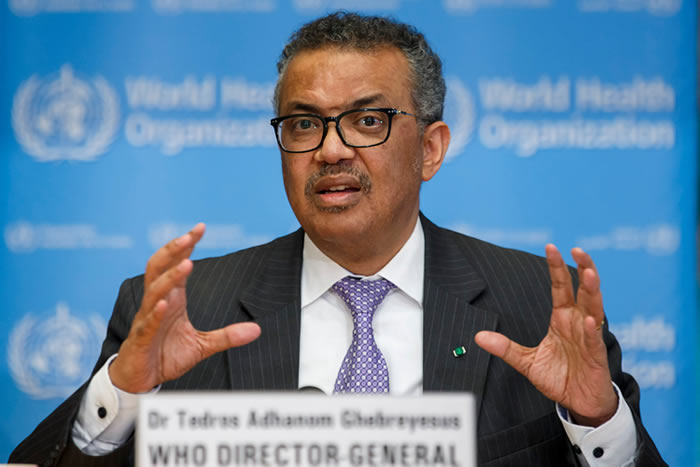
Dr Tedros Adhanom Ghebreyesus – Director General of WHO
The World Health Organization says it is temporarily halting its clinical trials that use hydroxychloroquine to treat COVID-19 patients over published concerns that the drug may do more harm than good.
The move comes after the medical journal The Lancet reported on Friday May 22 that patients getting hydroxychloroquine were dying at higher rates than other coronavirus patients.
The WHO has 3,500 patients from 17 countries enrolled in what it calls the Solidarity Trial. This is an effort overseen by the WHO to find new treatments for COVID-19.
The review will consider data collected so far in the Solidarity Trial and in particular robust, randomized available data to adequately evaluate the potential benefits and harms from this drug hydroxycholoroquine.
The patients in the trial have been randomly assigned to be treated with hydroxychloroquine which is a common malaria drug, or 3 other experimental drugs for treating COVID-19 in various combinations. Only the hydroxychloroquine part of the trial is being put on hold.
“The review will consider data collected so far in the Solidarity Trial and in particular robust, randomized available data to adequately evaluate the potential benefits and harms from this drug [hydroxycholoroquine],” WHO Director General Tedros Adhanom Ghebreyesus said during an online press conference from Geneva on Monday.
The WHO’s chief scientist, Soumya Swaminathan, says the review was prompted by the article in The Lancet, which was not a randomized control trial but still large.
Hydroxychloroquine has been touted by US President Donald Trump and others as an effective treatment for COVID-19.
Mr Trump said last week that he was taking the drug to help prevent infection, although he later announced that he had stopped taking it.
Agencies











